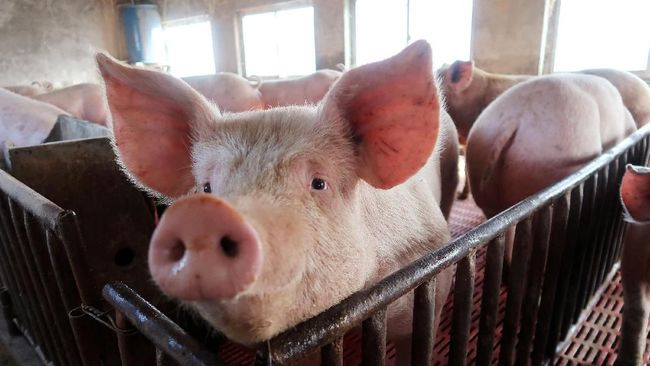Jakarta, CNBC Indonesia – The Russo-Ukrainian war has created a food security crisis and higher energy prices in the world. But make no mistake, it seems that there are two big problems in China that also have a big role in exacerbating inflation worldwide, said the Peterson Institute for International Economics (PIIE)
“Russia’s war in Ukraine has taken a shocking toll in the region,” wrote PIIE analysts Chad Bown and Yilin Wang.
“It has also contributed to the global food crisis, as Russia has blocked exports of essential fertilizers needed by farmers elsewhere, and Ukraine’s role as a granary for Africa and the Middle East has been destroyed.”
“But there are other unappreciated risks to global food security,” they wrote in a note last week.
Analysts singled out the restrictions and tariffs imposed by China on two main commodities, fertilizer and pork.
Fertilizer prices in China and around the world started to rise last year, as a result of strong demand and higher energy prices, but were pushed even higher after the Russo-Ukrainian war.
Last July, authorities ordered major Chinese companies to suspend fertilizer exports to ensure supply to the domestic chemical fertilizer market. In October, as prices continued to rise, the authorities began to require additional controls on exports.
The restrictions have continued into this year, and will last until at least after the end of summer, Reuters reports.
“This combination of non-tariff barriers has caused China’s fertilizer exports to fall sharply. With more production kept domestically, China’s fertilizer prices have fallen and are even starting to fall,” the analysts wrote.
Higher pork prices globally began in 2018 when China – which then makes up half of the world’s pork supply – saw its pig population hit by a major outbreak of African swine fever.
This led to China culling 40% of its pig herd, which caused its pork prices to more than double by the end of 2019.
Then world prices followed, surging 25% as China imported more pork and pulled supplies from the market, according to PIIE.
“China eased price pressures at home starting in 2019 by capitalizing on imports before recently shutting them down. This policy affects the rest of the world,” wrote PIIE analysts.
Beijing is also cutting tariffs on pork imports in 2020, likely causing consumers elsewhere to suffer higher prices as a result of falling supply, the think tank said.
However, the authorities raised those rates again this year as the swine fever problem subsided.
“Unwanted potential gains would be made if, in the current high global meat price environment, Chinese tariffs unpredictably freed up world supply and helped ease the pressure on pork prices facing consumers outside China,” the report said.
(hps/hps)
–


